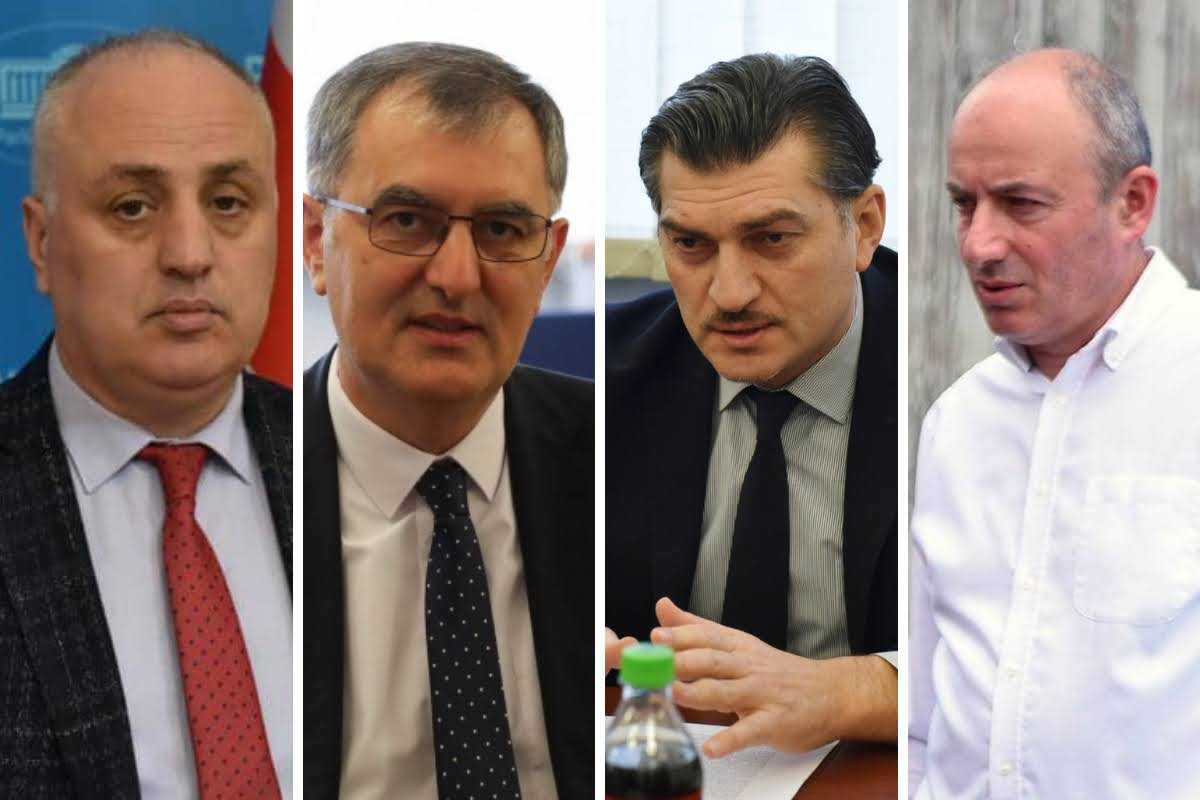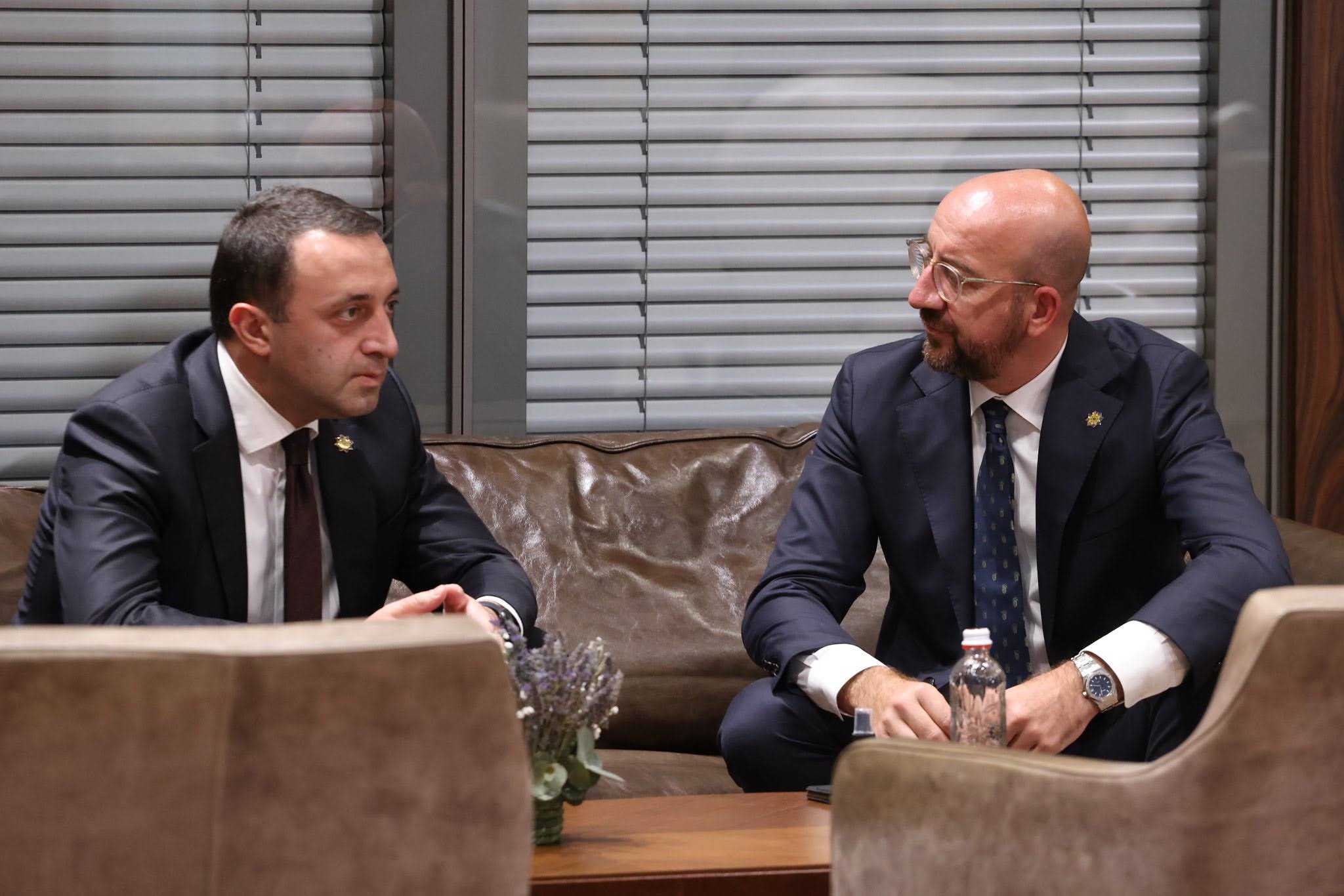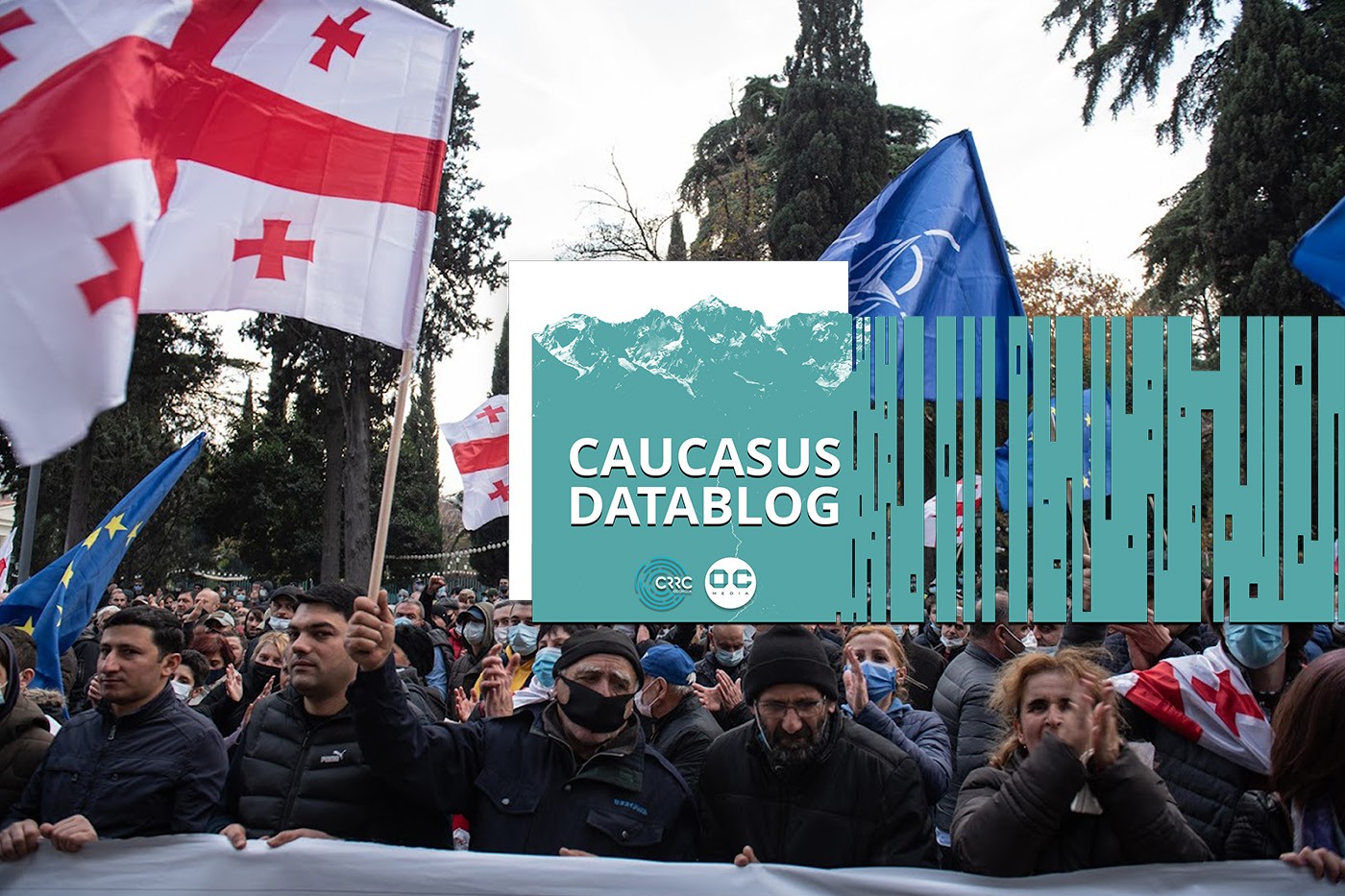
Georgian politics often appears to be in a near-constant crisis — marked by protests, boycotts, and acrimony. But who do Georgians think should solve their political problems?
Since the 2020 parliamentary elections, Georgia has experienced political deadlock. The EU and US both supported attempts to mediate between the government and opposition, ultimately leading to the Charles Michel Agreement. This agreement, though, was eventually abandoned.
Just this week, the opposition United National Movement (UNM) announced they would stop boycotting parliament, though it is unclear whether this will be a lasting agreement.
But who can help move things forward? New data from the December 2021 CRRC and NDI survey suggests that the public wants parties to work together and a plurality wants them to resolve their problems themselves.
According to the CRRC and NDI December 2021 survey, 4 out of 5 people in Georgia agree that their favoured political party (if they had one) should cooperate with all other political parties in the parliament, even if the actions/views of some parties might be unacceptable to them.
Respondents were asked who they thought could best mediate and facilitate through the difficulties that parties are having.
A third said that parties themselves would make the best mediator and facilitator in this process. Almost one in five said that Western partners would fulfil the role best.
Fewer people said that the president of Georgia, speaker of parliament, or others would be the best facilitators. Notably, roughly one in five do not know who could fulfil this role.
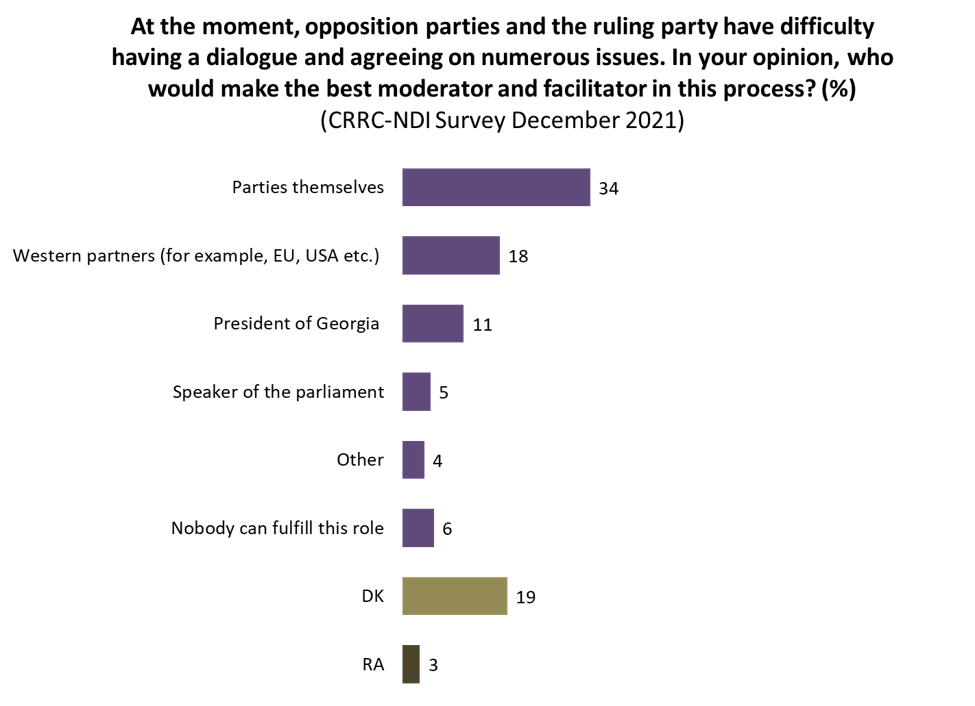
At the same time, more than half of the population does not identify with any political party and every second person in Georgia disagrees that the opposition parties or the ruling party serve the interests of the country and the Georgian people.
A regression analysis shows that attitudes towards who would be the best mediator vary among different groups.
Compared to men, women were slightly more likely to say that parties themselves would make the best mediator. People with a higher education were 1.2 times more likely to name political parties than people with secondary or lower education.
Ethnic Georgians were also 1.2 times more likely to do so compared to ethnic minorities and Georgian Dream supporters were 1.3 times more likely to do so than people who did not name a party.
The regression analysis shows that young people are slightly more likely to name Western partners as their preferred mediators compared to older people.
People who live in the capital were around 1.4 times more likely to name Western partners compared to other urban and rural areas.
Ethnic Georgians were 7 times more likely to do so compared to ethnic minorities, and opposition supporters were around 3 times more likely to think of Western partners as the best for mediation compared to Georgian Dream supporters.
Additionally, people who approve of Georgia’s membership in NATO were 2.6 times more likely to prefer Western partners as facilitators compared to people who do not approve of Georgia’s membership in NATO.
As for the president of Georgia, people with secondary technical education were slightly more likely to name the president as the best mediator compared to people with lower or higher levels of education. Ethnic Georgians were also slightly more likely to think the same compared to ethnic minorities.
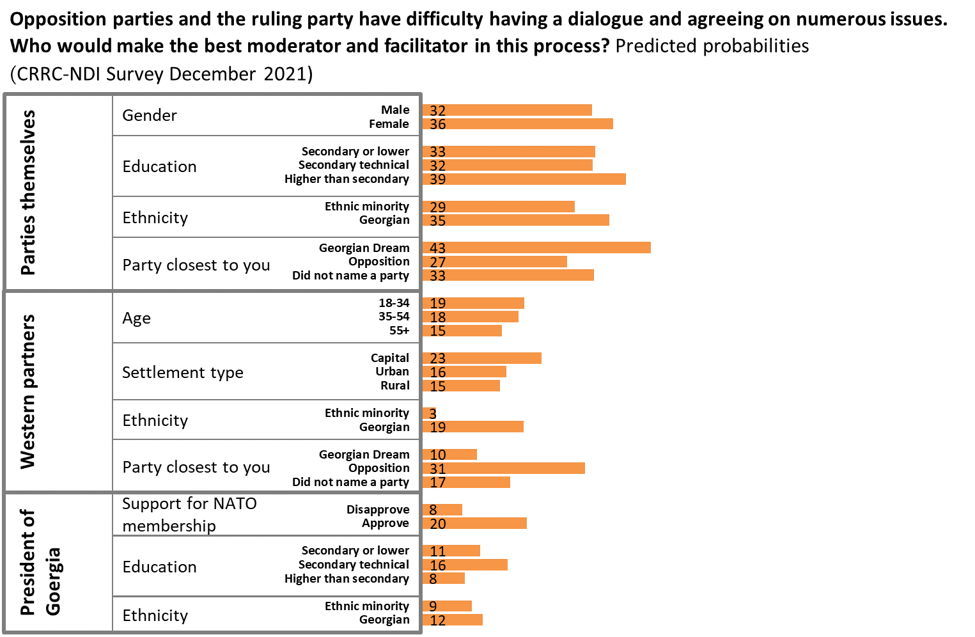
Note: This chart was generated from a regression model. The model includes gender (male, female), age group (18–34, 35–54, 55+), settlement type (capital, urban, rural), education (secondary or lower, secondary technical, tertiary), ethnicity (Georgian, ethnic minority), party respondent names as closest to his/her views (Georgian Dream, opposition party, did not name a party (Don’t know, Refuse to answer, No party)), support for NATO membership (approve, disapprove) and an additive index of ownership of different items, a common proxy for wealth.
Georgians want their political parties to cooperate and generally are more likely to think that the ruling and opposition parties do not serve the interests of the country and the people.
Though the public’s opinion differs when it comes to who could best facilitate dialogue between parties, a plurality think the parties themselves should do it.
Opposition supporters, people living in the capital, and people who support Georgia’s membership in NATO were more likely to think of Western partners as the best facilitators, while Georgian Dream supporters were more likely to think that parties themselves should lead and facilitate dialogue.
